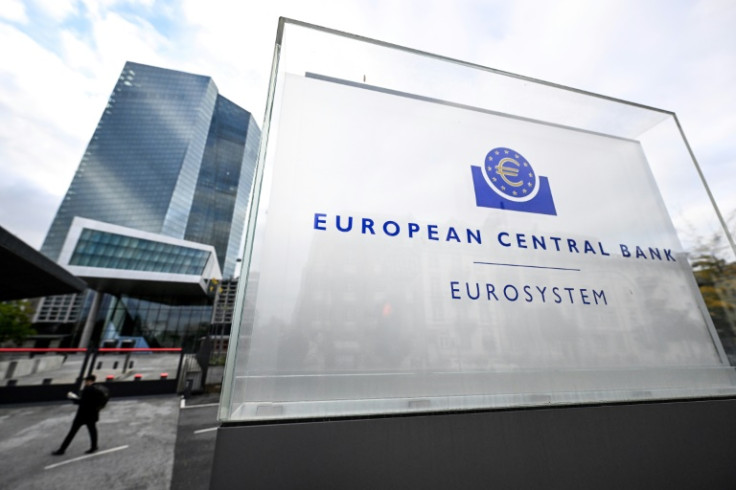Rate Pauses In View On Busy Central Banking Day In Europe

The European Central Bank and the Bank of England were on Thursday expected to pause rates again as inflation retreats, while markets cheered the US Federal Reserve's clear signal that it would start slashing borrowing costs in 2024.
On a bumper day for central banks in Europe, policymakers were holding their final meetings of 2023 -- a year marked by steep interest rate hikes to tame runaway consumer prices.
The Swiss National Bank kicked off Thursday's action by keeping its key interest rate at 1.75 percent.
SNB policymakers acknowledged that inflationary pressures had eased but warned that rising electricity prices and rents could yet trigger a renewed inflation jump.
Norway's Norges Bank bucked the trend by raising its main interest rate by a quarter percentage point to 4.5 percent, warning that inflation remained too high.
In Washington on Wednesday, the Fed held its key lending rate at a 22-year high for a third straight meeting, following a recent flurry of positive economic news.
Policymakers also indicated that they expect to make three rate cuts next year, triggering a stock market rally as investors celebrated the prospect of a faster easing cycle.
"The Fed has delivered an early Christmas present to markets," said Kellie Wood, at Schroders.
Later on Thursday, the Bank of England is expected to stand pat for a third time and keep its main interest rate at 5.25 percent. UK inflation slowed sharply to 4.6 percent in October but remains the highest among the G7 rich nations.
In Frankfurt, the ECB is widely predicted to leave rates unchanged for a second time.
With investor attention shifting to when borrowing costs might start coming down again, ECB president Christine Lagarde is expected to use her press conference to push back against market hopes of a rate cut in the early months of 2024.
"Markets will probably have to correct some of their over-optimistic rate cut expectations once the ECB has spoken," said Berenberg bank economist Holger Schmieding.
Many analysts think the ECB will start slashing rates in June, but a recent fall in eurozone inflation has prompted some to predict a first reduction as early as April.
Inflation in the 20-nation currency club tumbled to 2.4 percent in November, a two-year low and not far off the ECB's two-percent target.
Inflation had peaked at about 10 percent last year after prices were pushed up first by post-pandemic supply chain woes, and then an energy crisis triggered by Russia's invasion of Ukraine.
A weakening economy has provided further ammunition for those arguing for a cut sooner rather than later.
The European Commission last month lowered its growth forecasts for 2023 and 2024 and the ECB itself has warned that a recession was a "possible scenario".
But uncertainty remains about the path forward, with ECB officials expressing concern that rising wages in the euro area could drive inflation higher again. An escalation of the Hamas-Israel war could also push up energy prices.
Lagarde, who has stressed that the ECB's next moves will be "data dependent", last month said it was "not time yet to start declaring victory".
The ECB's newest economic forecasts on Thursday could be key to charting a course forward. Analysts expect both the inflation and growth outlook to be trimmed.
"The lower the ECB's growth and inflation forecasts for 2024 and 2025, the higher the likelihood of rate cuts," said ING economist Carsten Brzeski.
Lagarde's communication challenge on Thursday will be to "keep all options open" without sounding "too detached from reality", he added.
© Copyright AFP {{Year}}. All rights reserved.





















